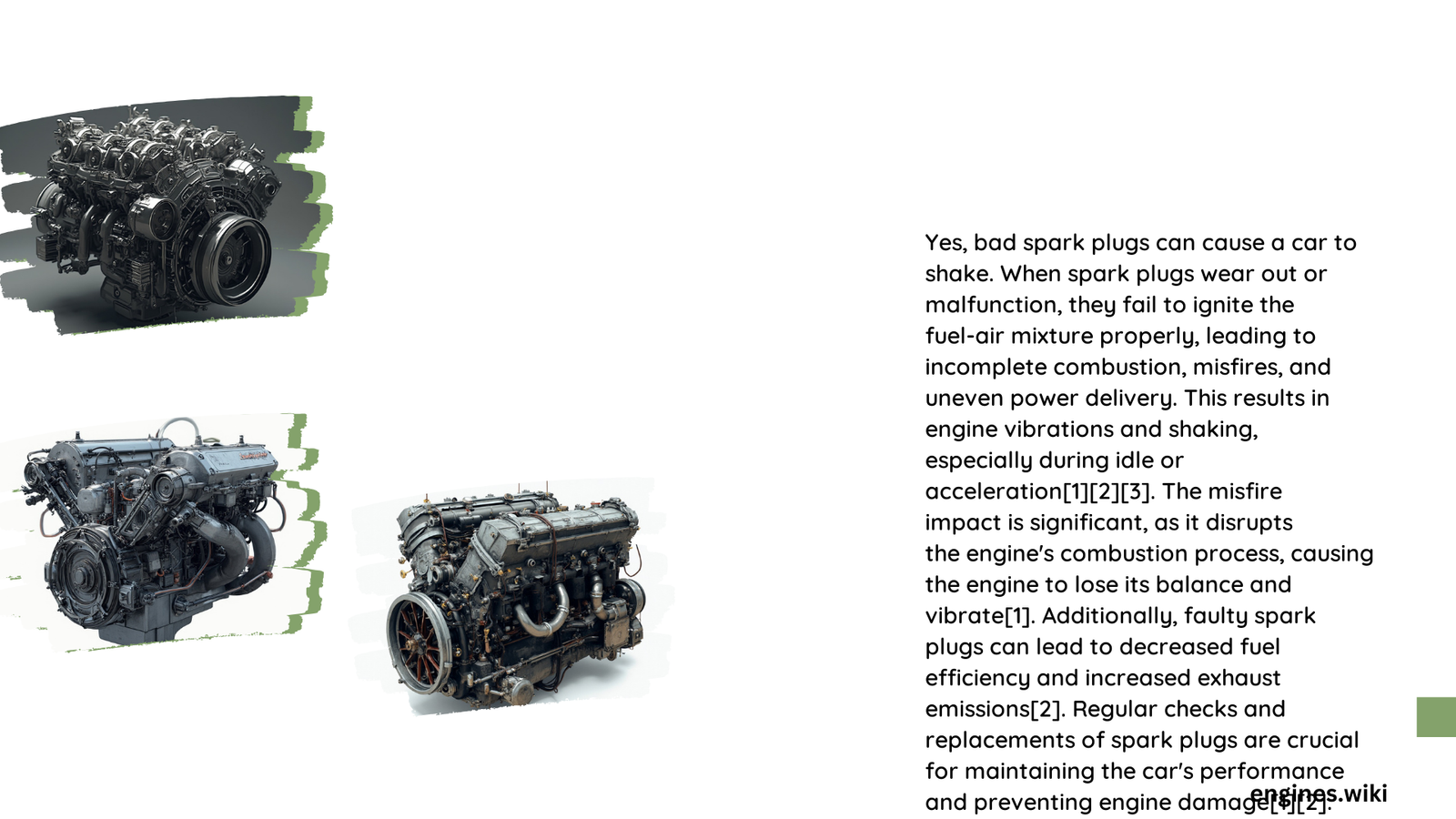Engine vibrations can be alarming for any vehicle owner, and spark plugs play a critical role in determining your engine’s smooth operation. When spark plugs malfunction, they can trigger a cascade of performance issues that manifest as noticeable engine shaking, potentially compromising your vehicle’s reliability and driving experience.
What Causes Spark Plugs to Create Engine Shake?
How Do Faulty Spark Plugs Disrupt Engine Performance?
Spark plugs are precision components responsible for igniting the fuel-air mixture in your engine’s combustion chambers. When they malfunction, several critical disruptions can occur:
Combustion Inconsistency
- Uneven Fuel Ignition: Damaged spark plugs fail to create consistent spark, leading to incomplete combustion
- Irregular Power Delivery: Inconsistent sparking causes unpredictable engine power output
- Cylinder Misfires: Individual cylinders may not fire correctly, creating noticeable vibrations
What Are the Primary Symptoms of Spark Plug-Induced Shaking?
| Symptom | Severity | Potential Cause |
|---|---|---|
| Rough Idling | Moderate | Inconsistent Spark |
| Acceleration Hesitation | High | Misfiring Cylinders |
| Increased Fuel Consumption | Low-Moderate | Inefficient Combustion |
| Engine Vibration | High | Multiple Spark Plug Issues |
How Can You Diagnose Spark Plug Problems?
Visual Inspection Techniques
- Check spark plug electrode for wear
- Examine ceramic insulator for cracks
- Measure electrode gap using precision gauge
- Look for carbon deposits or unusual discoloration
What Factors Contribute to Spark Plug Failures?
Environmental and Mechanical Influences
- Engine Temperature Extremes
- High-Stress Driving Conditions
- Poor Fuel Quality
- Incorrect Spark Plug Specifications
- Extended Mileage Without Maintenance
Can Specific Vehicle Types Experience More Spark Plug Issues?
Different vehicle types exhibit varying susceptibility to spark plug problems:
- High-Performance Engines: More frequent replacements needed
- Older Vehicles: Higher risk of electrode degradation
- Turbocharged Engines: Increased combustion chamber stress
- Diesel Engines: Different spark plug design and wear patterns
What Are Recommended Maintenance Strategies?
Proactive Spark Plug Care
- Follow manufacturer’s recommended replacement intervals
- Use high-quality spark plugs matching vehicle specifications
- Perform regular diagnostic checks
- Monitor engine performance consistently
- Address minor issues before they escalate
Economic Implications of Spark Plug Maintenance
Replacement Cost Breakdown
- Average Spark Plug Cost: $5 – $30 per unit
- Labor Costs: $100 – $250
- Potential Engine Damage Prevention: Priceless
Technical Considerations for Spark Plug Replacement
Professional Diagnostic Recommendations
- Use specialized diagnostic tools
- Perform comprehensive engine analysis
- Check ignition system components
- Verify fuel system functionality
Conclusion

Understanding how spark plugs can make an engine shake empowers vehicle owners to take proactive maintenance steps. Regular inspections, timely replacements, and professional diagnostics can prevent costly engine damage and ensure optimal performance.
